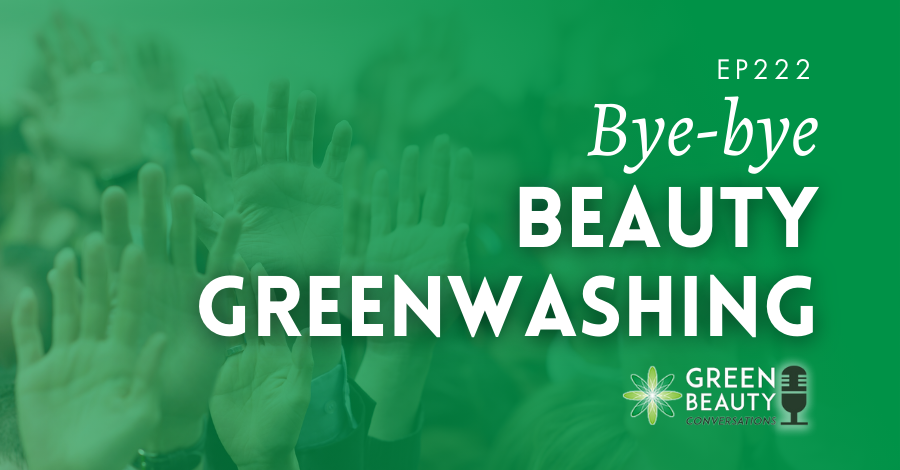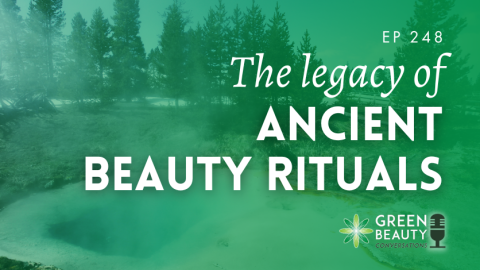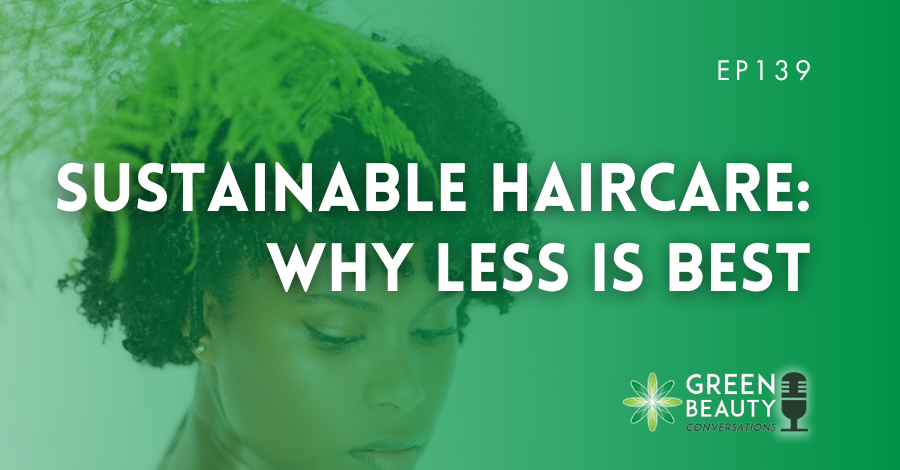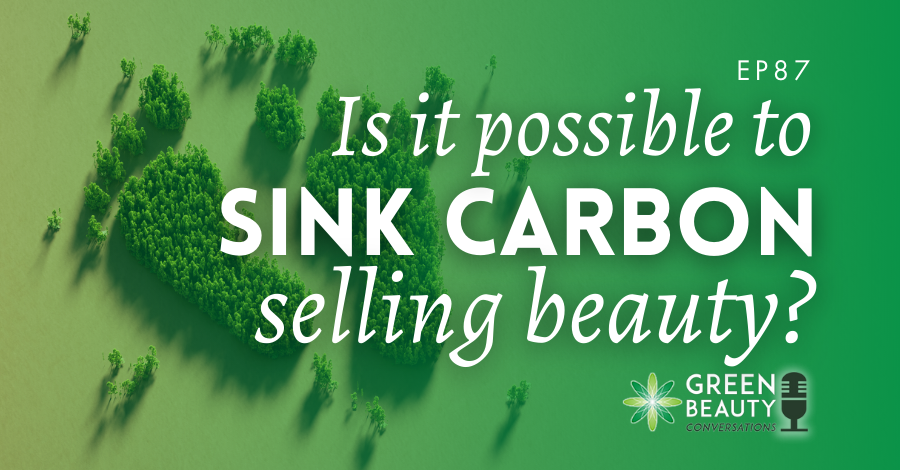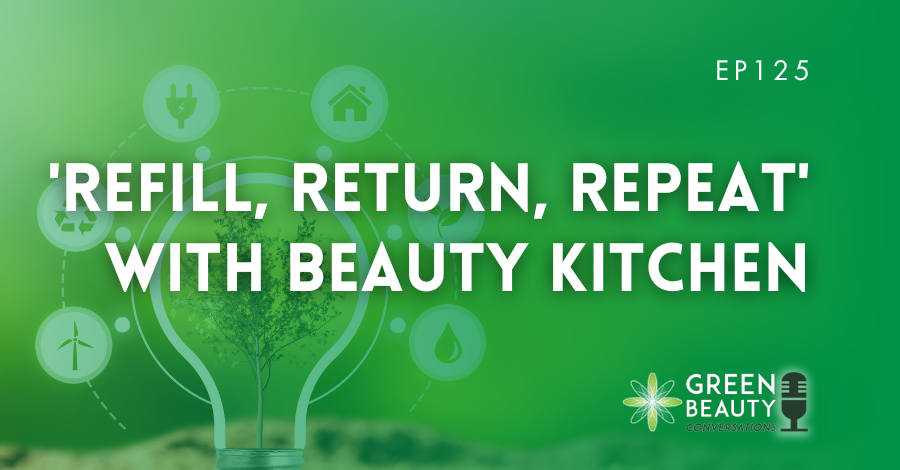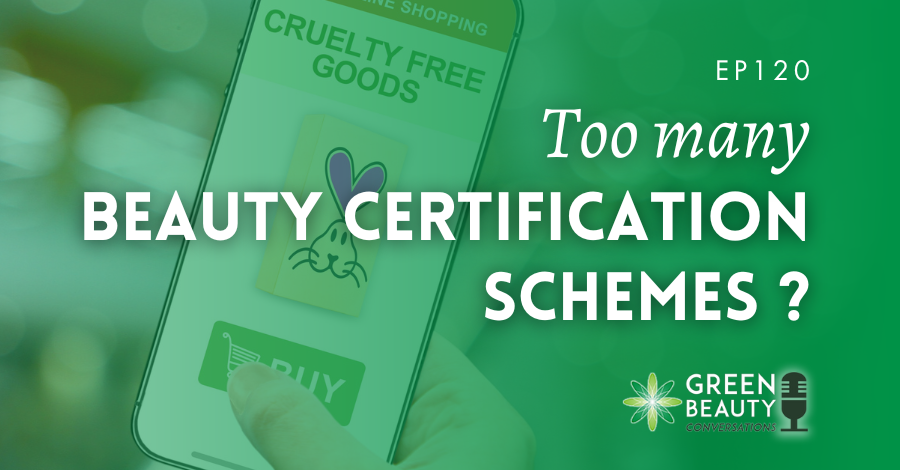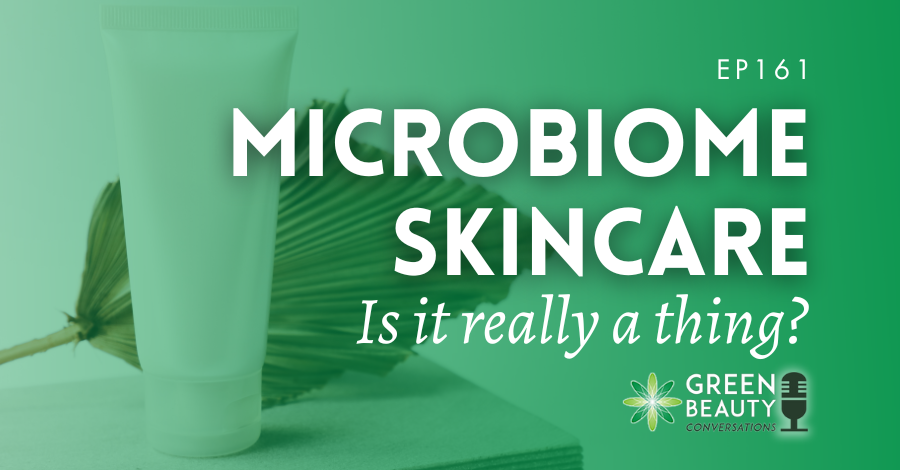Imagine a world where greenwashing doesn’t exist.
Or let’s go one step further, imagine a world where greenwashing doesn’t exist in the cosmetics industry.
This could potentially be the future, as legislation is emerging all over the world to make companies and organisations liable for greenwashing.
Last week, we interviewed Priscilla Rolvers of Green Cosmetics Revolution about the significant regulatory changes in the EU with the introduction of the new greenwashing Directive. Don’t miss out on this eye-opening discussion that could change the way we all buy our favourite beauty products.
In this week’s episode of the Green Beauty Conversations podcast, Lorraine Dallmeier, Chartered Environmentalist, Biologist, and CEO of Formula Botanica now delves into the issue of greenwashing in the beauty industry and explores how emerging legislation is set to hold companies accountable for their environmental claims.
“Imagine a world where greenwashing doesn’t exist in the cosmetics industry. This could potentially be the future as legislation is emerging all over the world to make companies and organisations liable for greenwashing.”
— Lorraine Dallmeier, Formula Botanica CEO
Key Takeaways
- Understanding greenwashing: Greenwashing is the deceptive practice where companies falsely promote their products as environmentally friendly. This can include using non-recyclable packaging or ingredients that are not sustainably sourced while marketing their products as eco-friendly.
- Legislative changes: The EU’s Greenwashing Directive aims to curb these misleading practices by imposing stringent regulations on how companies can market their environmental impact. This Directive mandates that the 27 EU member states create national laws that enforce these regulations, with fines up to 4% of annual turnover for non-compliance.
- Exemptions for micro enterprises: Interestingly, the EU Directive exempts micro-enterprises—those with fewer than 10 employees and less than 2 million euros in annual turnover. This exemption encourages small, innovative indie beauty brands to explore sustainable practices without the fear of heavy penalties. Larger brands are not afforded this leniency. They must tread carefully or receive huge fines.
- Global impact: The ripple effect of the EU’s legislation is expected to influence global regulations, making it harder for large corporations worldwide to make unsubstantiated green claims. This shift will likely lead to more cautious and genuine sustainability claims from beauty giants. Lorraine predicts that this will lead to the beauty industry being more cautious about claims. And it will ultimately benefit consumers.
- Consumer role: While new regulations are a step forward, consumers also play a critical role in holding brands accountable. By staying informed and choosing products that genuinely adhere to sustainable practices, consumers can drive change in the industry.
Thank you for joining us for this episode of the Formula Botanica Green Beauty Conversations podcast. If you enjoyed listening, please share, subscribe and review this episode on Apple Podcasts, Spotify or Youtube so that more people can enjoy the show. Don’t forget to follow and connect with us on Facebook and Instagram.
FREE TRAINING
Learn how to become an
Organic Skincare Formulator
FREE TRAINING
How to become an
Organic Skincare Entrepreneur
FREE TRAINING
How to become an
Organic Skincare Entrepreneur
Leave us a comment
Lorraine Dallmeier is a Biologist, Chartered Environmentalist and the CEO of Formula Botanica, the award-winning online organic cosmetic science school. Read more about Lorraine and the Formula Botanica Team.

